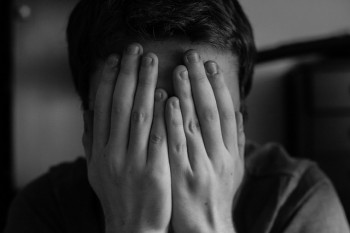Written by Andrew Shaw.
Depression and anxiety can become an addiction. It can latch onto your mind and threaten to never leave. It was argued by Hara Estroff Marano in Psychology Today that “for now, no unambiguous end-point of treatment has been defined and no specific test of cure exists.”

Many who suffer from it learn to try and shut it away in their mind, take medication or counselling. However, there are ways to cope with it that do not require mental repression. Below are some suggested tips on how to give your head a rest from these complex disorders:
Exercise
Generally good advice in life, however there is substantial evidence that shows being more active can lift your mood through the release of dopamine. It does not have to be a solid two hour gym session; it can be as simple as a short 30 minute walk every day.
On top of this, exposing yourself to sunlight can significantly improve your mood. Listening to your iPod whilst out and about can also be good for your mental health, with Blackwell Publishing Ltd. finding that listening to music could reduce symptoms of depression by up to 25%.
Try and avoid withdrawal
It is understandable to draw back from your friends and family when you are feeling down. Feeling useless or like an outsider can quickly undermine your desire to socialise, but keeping to yourself can be counterproductive.
It is healthier to talk through your problems with others rather than keeping them bottled up in your head.
Do not drink too much
No matter how many times you look, you will never find your answers at the bottom of a pint glass. Alcohol is a depressant and drinking when you are depressed will only amplify those negative emotions. Not only will you likely embarrass yourself, drinking to cope or hide your feelings can lead to serious alcoholism issues.
Eat well
Foods high in omega-3 fatty acids (some types of fish) and folic acid (such as dark green leafy vegetables and citrus fruits) have been linked to fighting depression, so stock up on them.
Make a routine
If you feel low on the inside you will not always feel like getting enough sleep or eating healthily, but clinging onto that last shred of normality is important.
Tiredness and a poor diet will only make you feel even worse, and it can feel like the days are melting into one great bland muddle.
Take care of yourself
You may not feel like showering, let alone going through the motions of making yourself presentable, but paying attention to your personal appearance is a must if you hope to break out of the vicious cycle of depression. Relaxing baths can help, as can regular pampering sessions.
Challenge your thinking
First notice what especially upsets you and see if there is a pattern you can work with on how to react to that particular event in the future.
If there is no pattern then you can still aim to improve your thoughts. Spotting negative thoughts and deciding to change them forms the basis of Cognitive Behaviour Therapy (CBT) which is a very successful form of therapy frequently used by the NHS.
Keep a journal
As cathartic as opening up to the people you trust can be, sometimes it is difficult to gather the energy to explain yourself. This is when it can be better to sit down and write.
It may be painful to explicitly describe all the negative feelings weighing you down, but it gives you the chance to reflect on them and make plans to improve yourself. Reading back through previous journal entries can also show how far you have come.
As you may be able to tell, a lot of this advice is straightforward. But the reason the advice is normal is because so are the people suffering. You are just normal people going through a very difficult time. It can be incredibly difficult for people with major depression to get through these coping strategies, but it makes the world of difference.

